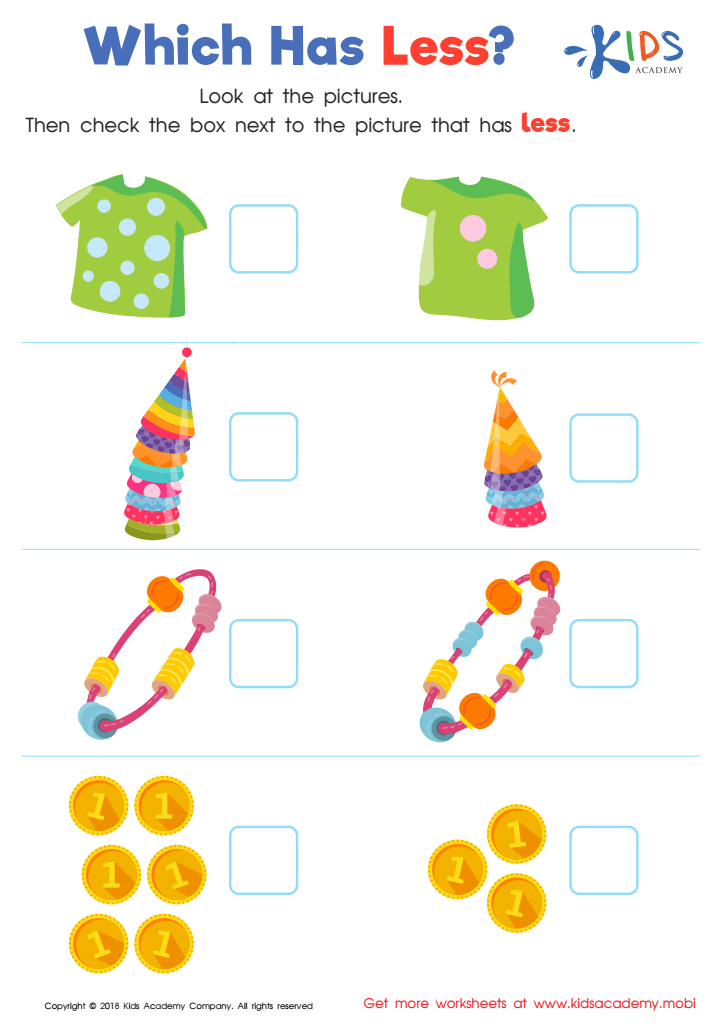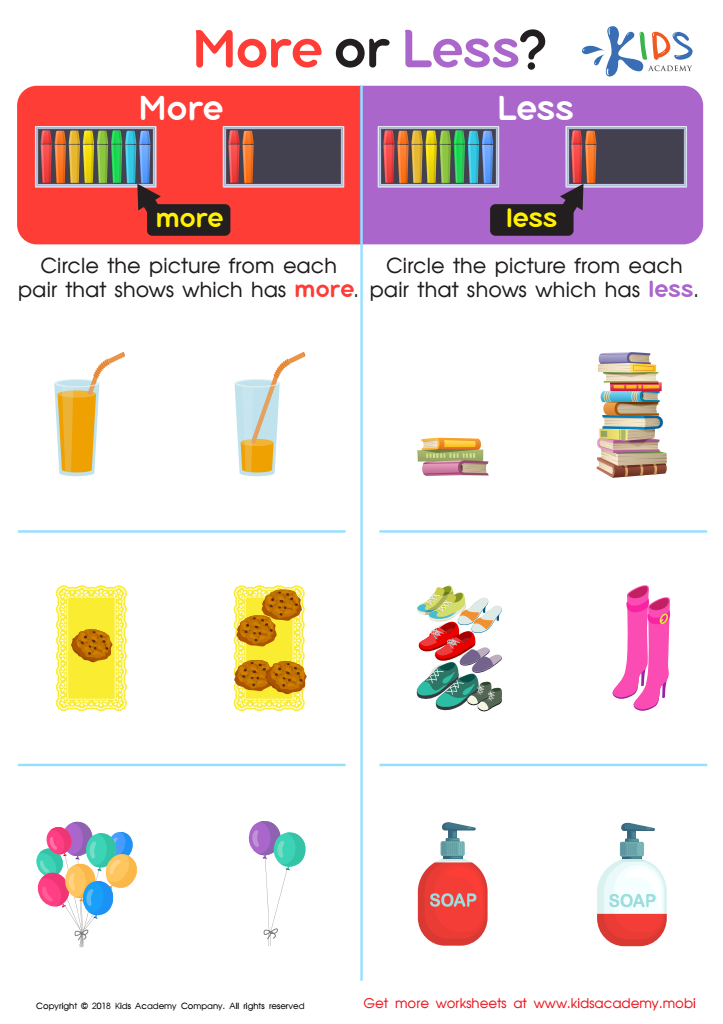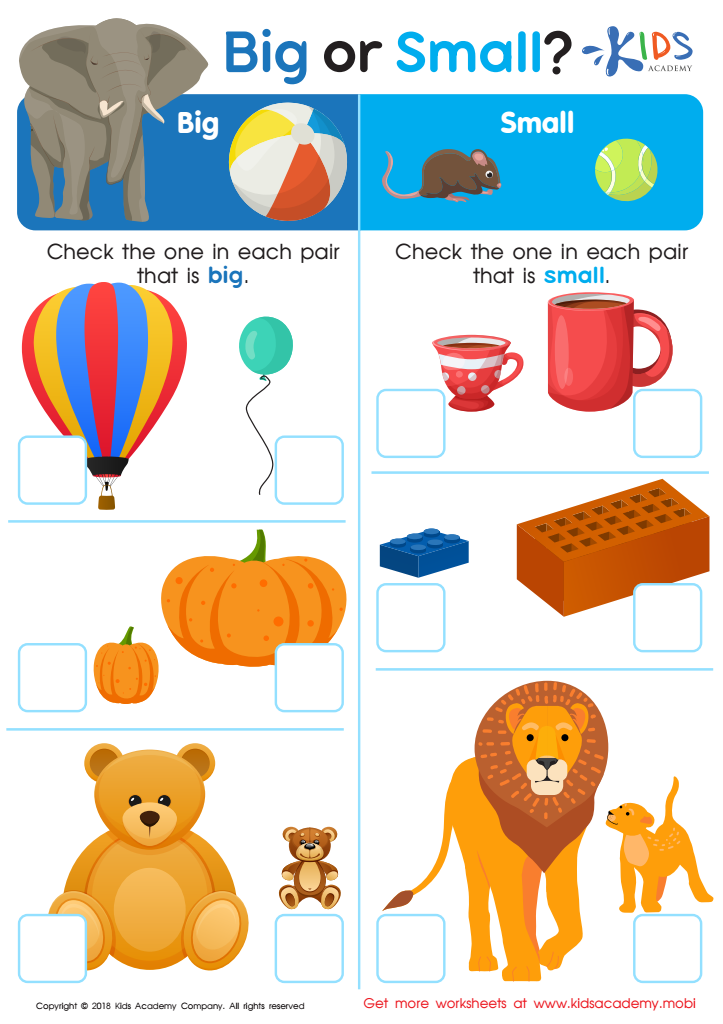Easy Comparison Worksheets for Ages 4-7
3 filtered results
-
From - To
Discover our engaging "Easy Comparison Worksheets" designed for children aged 4-7, perfect for enhancing their math skills! These colorful, interactive worksheets help young learners grasp basic comparison concepts such as greater than, less than, and equal to. Each worksheet includes age-appropriate visuals and fun exercises to keep kids motivated while learning. Ideal for both classroom use and at-home practice, our worksheets foster critical thinking and logical reasoning in a playful manner. Support your child's early mathematical development with these user-friendly resources that encourage confidence and independence. Get started today and watch your child thrive in their comparison skills!


Which Has Less? Worksheet


More or Less? Worksheet


Big or Small? Worksheet
Parents and teachers should care about Easy Comparison for Ages 4-7 because it plays a crucial role in developing early numeracy skills. At this age, children are naturally curious about the world around them and begin to understand relationships between objects. Easy comparison activities, like comparing sizes, quantities, and lengths, enhance critical thinking skills and promote logical reasoning.
Engaging in these comparisons helps children grasp fundamental mathematical concepts such as bigger vs. smaller and more vs. less. This forms the foundation for future mathematical understanding and fosters a positive attitude toward math. Furthermore, Easy Comparison activities promote language development as children learn to articulate their observations and reasoning, enhancing communication skills.
Incorporating these activities into daily routines, whether at home or in the classroom, fosters a collaborative learning environment where children feel encouraged to explore and inquire. These experiences help build confidence and a sense of competence in young learners, reinforcing the idea that math can be engaging and enjoyable. Ultimately, by prioritizing Easy Comparison, parents and teachers equip children with essential skills that will serve as building blocks for their future academic success and everyday problem-solving abilities.
 Assign to My Students
Assign to My Students


















